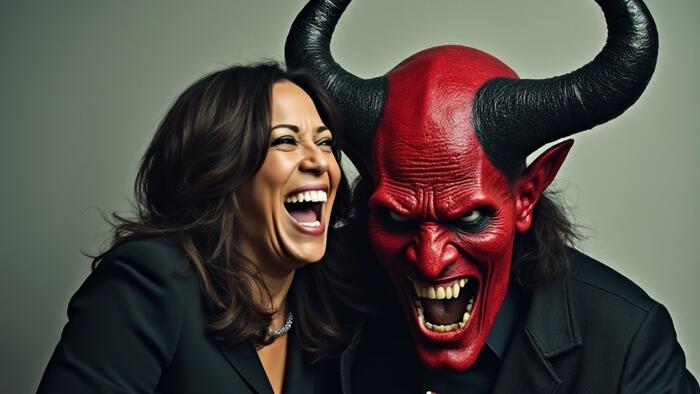In a recent endorsement of Donald Trump for the presidency, former Vatican Archbishop Carlo Maria Viganò articulated a stark moral dichotomy for American Catholics in his open letter. Viganò, who served as the Vatican’s ambassador to the United States from 2011 to 2016, framed the upcoming election as a decisive battle between a “conservative President” and what he described as an “infernal monster” in the form of Kamala Harris. Emphasizing that Harris embodies an “anti-Catholic, anti-Christian, and anti-human vision of society,” he urged American Catholics to view their voting choices through the lens of their faith, asserting that support for Harris would be tantamount to a grave sin.
Viganò’s letter emphasizes the moral imperative for Catholics to vote, arguing that abstaining from participation in the election makes one complicit with evident wrongdoing. He states, “in this war declaring oneself neutral means allying oneself with the enemy,” thereby suggesting that inaction is not an option. His narrative builds on the idea that voting for Trump is a concrete step away from a societal vision he perceives as detrimental to Christian ideals and humanity as a whole. He further characterizes Trump as someone who is bravely contending with the deep state, framing him as a sacrificial figure whose fight is critical for America’s future.
The former archbishop portrays Trump not just as a political figure but as a bulwark against what he perceives to be a globalist coup led by the so-called “woke Left.” He warns of a dystopian future that could be worse than the one depicted by George Orwell, further igniting fears about societal decline under progressive leadership. Viganò urges Catholics to align with Trump as the only effective means of countering the extensive changes he associates with leftist policies and ideologies, which he believes could irreversibly harm future generations.
In further delineating his condemnation of Harris, Viganò accuses her of being a “puppet” of powerful figures such as George Soros, Barack Obama, and Hillary Clinton. This rhetoric seeks to position Harris not just as a political adversary but as a willing instrument of larger, nefarious forces whose goals align against traditional Judeo-Christian values. By employing this narrative, Viganò invokes a sense of urgency for Catholics to mobilize against what he frames as systemic threats to their faith and way of life.
Moreover, Viganò’s controversial views have resulted in significant pushback within the Catholic community. In July, he was excommunicated from the Church after he openly criticized the current Pope and the progressive changes made under his leadership. His opposition extended to public health policies during the COVID-19 pandemic, which he described as “experimentation on the entire world population.” This critical stance highlights his alignment with a faction within the Church that resists contemporary reforms, indicating a broader schism around issues of faith, governance, and public health.
Viganò’s letter and endorsements serve as a rallying cry for certain factions within the Catholic community, reflecting deep ideological divides that have emerged in recent years. His unequivocal call to action is not merely about politics but is deeply tied to core beliefs about morality and societal direction. As the 2024 presidential election approaches, his pronounced views will likely resonate with like-minded individuals who perceive the election as pivotal for the preservation of their values, influencing their engagement in the political arena. As he continues to navigate the contentious landscape of modern Catholicism and politics, Viganò’s rhetoric exemplifies the intersection of faith, identity, and governance in contemporary discourse.

